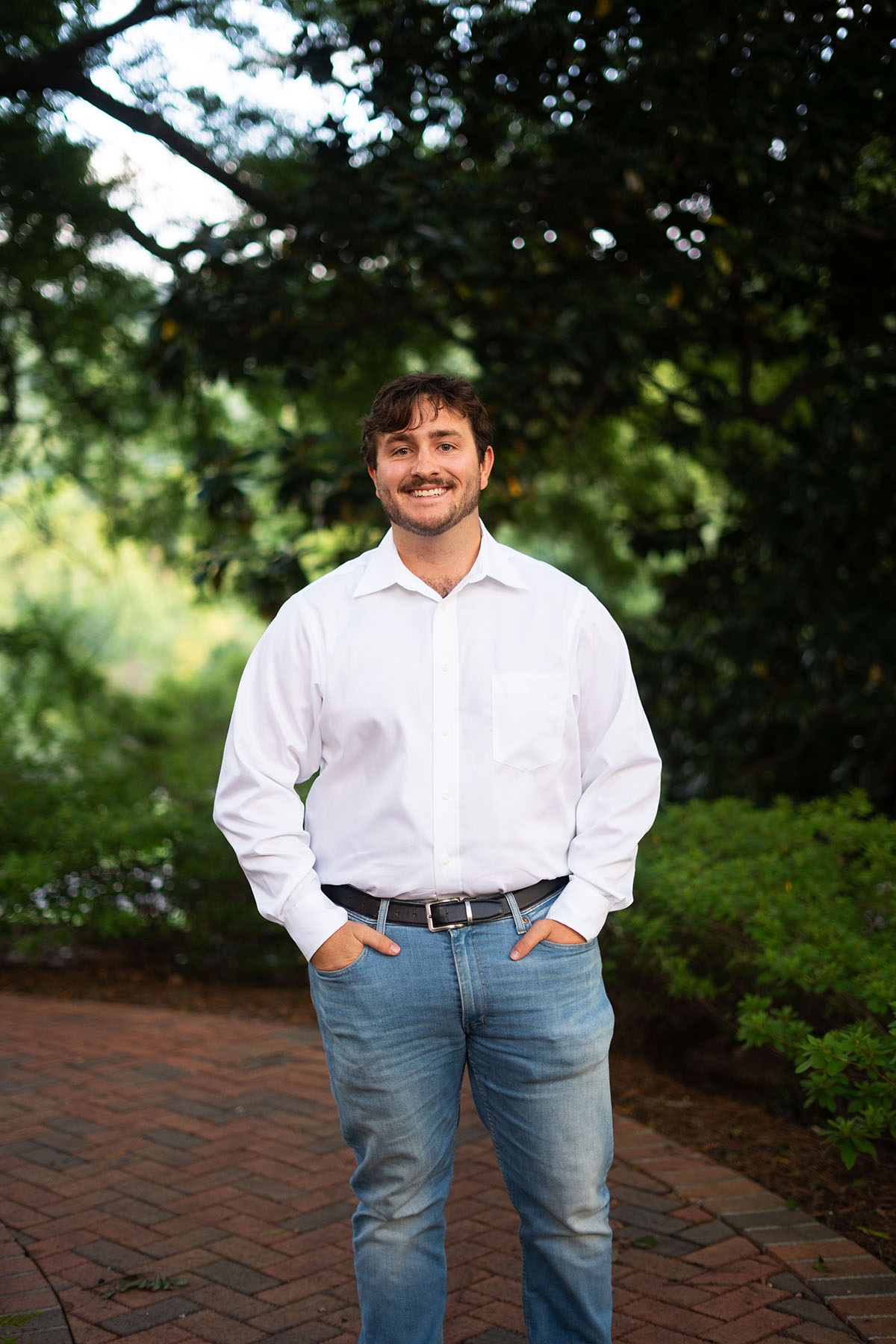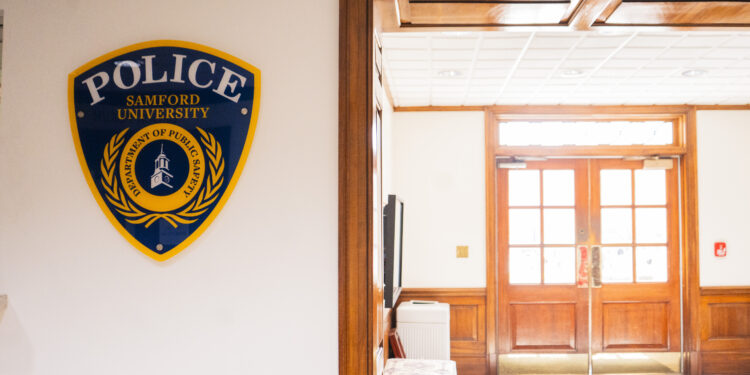The Clery Act is a federal law that, among other things, requires college campuses to keep an updated crime log.
Samford, overall, is known as a safe campus that is protected by its around the clock public safety department headed by Chief Tommy Taylor. They answer calls at every hour of the day and night to ensure Samford’s safety.
“Next week (spring break) when y’all are gone, campus public safety will still be right here doing the exact same things we do every day,” said Taylor.
Most of the calls they receive and respond to have to do with students getting locked out of their cars or having car related issues. These calls do not typically make it on the crime log because they are not crimes. Most of the crime log consists of minor theft that tends to be misunderstandings according to Chief Taylor.
“The things that we have here, I’m proud to say, are not what you might consider exciting calls,” said Taylor.
Recently a few unique reports have been entered in the crime log. First, a small brush fire by the Pete Hanna Center that was put out by Andrew Benson, assistant athletic director for Facilities and Equipment Services, before any firetruck got to Samford. According to Taylor, five firetrucks were sent to the location.
Secondly, and less recently, on Feb. 13, a string of related logs that was located in the University Center was added to the crime report. The crime report listed them as a probation violation, possession of marijuana second degree and possession of a controlled substance. This was one event and is still under investigation according to Chief Taylor.
There are many crimes that go unreported and never get added to the crime log. Also, due to certain legal definitions, some crimes won’t get added to the crime log.
According to Human Development Professor Jonathon Davis who did a study on unreported crimes at Samford in 2013 through 2015, the most commonly unreported crimes are sexual assault or harassment, inter relational violence (dating violence) and stalking. Stalking gets reported at higher rates because it is less stigmatized according to Davis.
“What I found, in my sample of a few hundred students, it was something like six or seven percent of people each year would experience something like sexual assault or dating violence, a higher number was stalking,” said Davis.
There are a few limitations with his study, as the data is about ten years old. Davis plans on repeating this study in the future.
An important note about Davis’s study is that some students don’t even realize that they have been sexually assaulted. His study dives into the behavior of sexual assault instead of asking students if they have been sexually assaulted.
“One of the biggest ones is that they don’t think anyone can do anything about it or that they don’t think that they will be believed,” said Davis when asked why he thinks people don’t report these crimes.
The most consistently interesting things that the Department of Public Safety continually gets called about are suspicious people according to Taylor. This includes stalking. According to Davis, it’s a good sign that people are reporting crimes because it means that the system is working.
“My belief about the folks we have at Samford is that they will believe you and that they will take it seriously,” said Davis. “He (Chief Taylor) can address it (stalking) really effectively, sometimes if people are being harassed or stalked, then one conversation with a police officer will put an end to that and really change things for the victim.”
Though many crimes go unreported, Chief Taylor highly urges students to report crimes, whether that is to campus public safety, Title IX or local law enforcement.
“Anything that happens on this campus we always encourage students to reach out to us first,” said Chief Taylor.
Chief Taylor’s reasoning for this is because Samford Public safety’s system is designed to help students find the resources students need for the help that they need.
When students call public safety, they will respond right away, and when appropriate, they will give students the option to take up a criminal case or just a Title IX case. Samford public safety will also connect students with on campus mental health resources like Samford Cares.
For any instance that happens off campus, Chief Taylor recommends calling 911.

Editor-in-Chief





